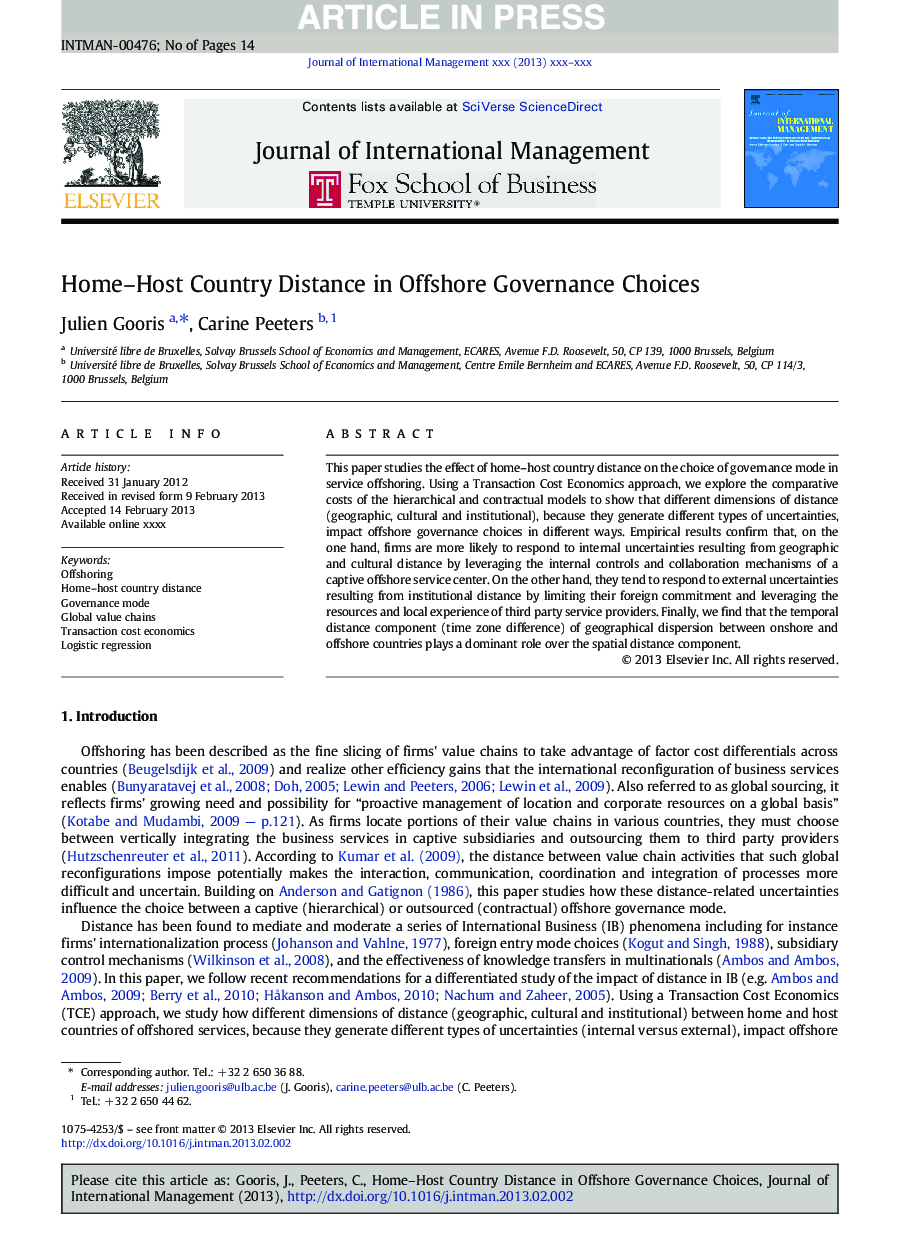| Article ID | Journal | Published Year | Pages | File Type |
|---|---|---|---|---|
| 10494155 | Journal of International Management | 2014 | 14 Pages |
Abstract
This paper studies the effect of home-host country distance on the choice of governance mode in service offshoring. Using a Transaction Cost Economics approach, we explore the comparative costs of the hierarchical and contractual models to show that different dimensions of distance (geographic, cultural and institutional), because they generate different types of uncertainties, impact offshore governance choices in different ways. Empirical results confirm that, on the one hand, firms are more likely to respond to internal uncertainties resulting from geographic and cultural distance by leveraging the internal controls and collaboration mechanisms of a captive offshore service center. On the other hand, they tend to respond to external uncertainties resulting from institutional distance by limiting their foreign commitment and leveraging the resources and local experience of third party service providers. Finally, we find that the temporal distance component (time zone difference) of geographical dispersion between onshore and offshore countries plays a dominant role over the spatial distance component.
Related Topics
Social Sciences and Humanities
Business, Management and Accounting
Business and International Management
Authors
Julien Gooris, Carine Peeters,
